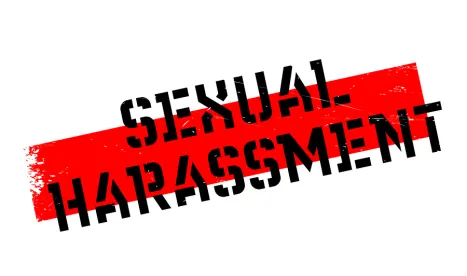The #TimesUp and #MeToo movements continue to be a force of national reckoning over sexual assault and harassment. This month, the New York City Council harnessed the energy from those social movements and transformed it into legislative action by introducing a series of bills aimed at preventing sexual harassment in the workplace. The Stop Sexual Harassment in NYC Act is a package of eleven bills that would significantly expand the obligations of many employers to prevent sexual harassment.
Mandatory Sexual Harassment Prevention Training
Int. 632 would require all private employers with 15 or more employees to conduct annual anti-sexual harassment training. The training would be “interactive”, defined as participatory teaching whereby the trainee is engaged in a trainer-trainee interaction, use of audio-visuals, or other participatory forms of training as determined by the commission. The training plan must include the following:
- An explanation of sexual harassment as a form of unlawful discrimination under local;
- A disclaimer that sexual harassment is also a form of unlawful discrimination under state and federal law;
- A description of what sexual harassment is and is not, using practical examples;
- Any internal complaint processes available to employees to address sexual harassment claims;
- A description of the complaint process available through the New York City Commission on Human Rights (“Commission”), the New York State Division of Human Rights and the federal Equal Employment Opportunity Commission, including contact information;
- An explanation, with examples, of what constitutes “retaliation” under the New York City Human Rights Law (“NYCHRL”); and
- The importance of bystander intervention.
The plan would require employers to make a record of all trainings including a signed employee acknowledgement and maintain those records for at least 3 years. The records must also be made available for commission inspection upon request.
Penalties for violations of the law would range from $100-$500 for the first violation and from $500-$2,000 for each succeeding violation. However, an employer would be able to avoid a penalty for a first-time violation if the employer could prove within 60 days of the issuance of the notice of violation that it has complied with the law.
Notices
Int. 630 would require the New York City Commission on Human Rights to design an anti-sexual harassment rights and responsibilities poster in English and Spanish. All employers in New York City would be required to display such poster in a conspicuous location where employees gather. It would also require employers to provide new hires with an information sheet on sexual harassment. Penalties for violations would range up from $250 for the first violation.
Statute of Limitations
Int. 663 would lengthen the statute of limitations for filing gender harassment claims directly with the Commission from 1 year to 3 years. Currently, a 3 year statute of limitations exists under the NYCHRL only to file a lawsuit. The bill would amend the City code to allow harassment claims “based on unwelcome conduct that intimidates, interferes with, oppresses, threatens, humiliates or degrades a person … based on such person’s gender.”
Expanded NYCHRL Employer Coverage
Int. 657 would expand the NYCHRL coverage of sexual harassment cases. Currently, the NYCHRL applies to employers with four or more employees. Int. 657 would eliminate that employee threshold with respect to gender-based harassment claims, and permit the assertion of such claims against all employers, regardless of size (aligning the NYCHRL with the New York State Human Rights Law’s coverage of employers for purposes of sexual harassment claims.)
If the legislation passes, New York City would be one of few jurisdictions to mandate sexual harassment training by private employers. The Council bills are still subject to amendment prior to further hearings or committee vote. If the bills are passed by committee, then they will move on to a vote by the full 51-member City Council.





 />i
/>i

